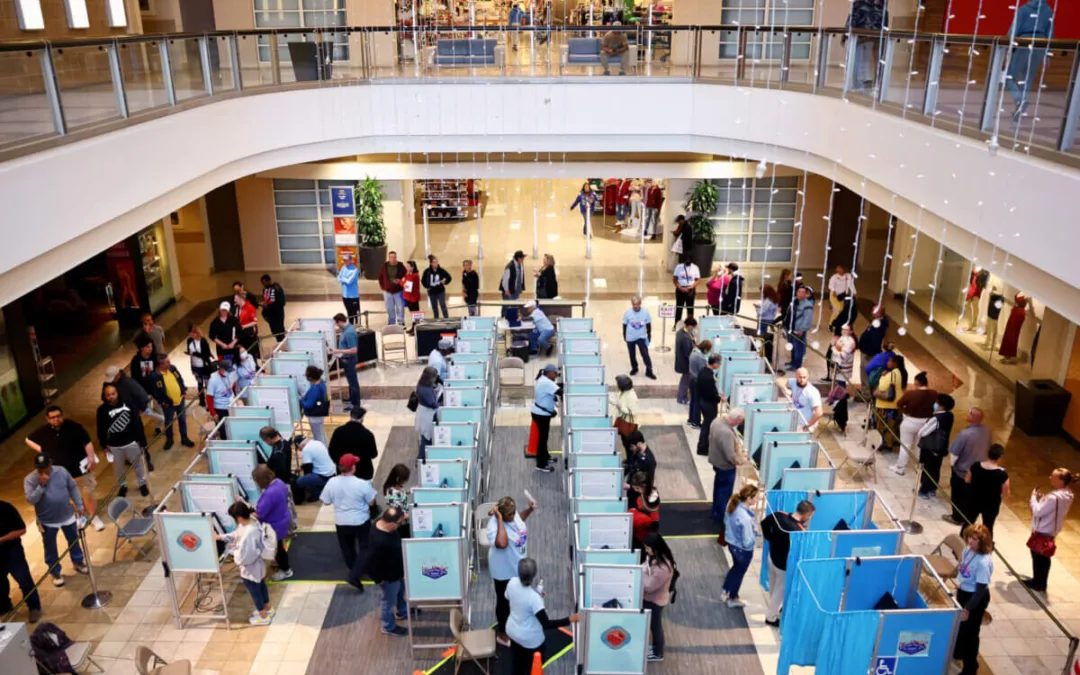
Image via Unsplash/annie bolin
A federal judge will now weigh in on whether Florida Gov. Ron DeSantis was motivated by partisanship when he denied ex-felons their voting rights until they paid all legal debts.
TALLAHASSEE, Fla. (AP) — After hearing seven days of testimony, a federal judge on Wednesday began weighing whether Florida Gov. Ron DeSantis and other Republican lawmakers were motivated by partisanship when they stipulated that felons must pay all legal debts before regaining their right to vote.
The decision could have deep ramifications: The state’s estimated 774,000 disenfranchised felons represent a significant bloc in a state well known for razor-thin election margins. Many of those felons are black and presumably Democrats.
RELATED: Florida GOP’s Attempt to Stop 1.4 Million From Voting Ruled Unconstitutional
With the state’s August primary and the November presidential election looming, the judge said there was some urgency to his ruling. During closing arguments Wednesday, lawyers for the plaintiffs asserted that the Republican-controlled Legislature was motivated by race, gender and partisanship when it passed a bill defining what it means to complete a sentence under a 2018 ballot measure known as Amendment 4.
The bill, later signed into law by DeSantis, requires felons to pay all fines, restitution and other legal financial obligations — known as LFOs — before their sentences can be considered fully served. Amendment 4 permanently bars convicted murderers and rapists from voting, regardless of financial debts.
“The Florida Legislature crafted an LFO requirement that it knew would disproportionately harm black voters,” argued Leah Aden of the NAACP Legal Defense Fund, one of several groups representing disenfranchised voters. The intent, she asserted, was to help Republican candidates.
“Why is it all the Republicans voted yes, and all the Democrats voted no?” U.S. District Court Judge Robert Hinkle asked during the state’s closing argument. “That was not a coincidence. It would be stunning if somebody told me that they did not realize that African Americans tend to vote Democratic.”
In October, the judge issued a preliminary injunction against the state that a three-judge panel of the 11th Circuit let stand five months later. And last month, the Atlanta-based appellate court declined to hear a further appeal backed by the governor.
RELATED: These States Don’t Think You Should Be Able to 3D Print a Gun
Hinkle’s preliminary injunction did not preclude Florida from revoking voting rights from felons who have the means to repay outstanding financial obligations but who refuse. But he likened the state’s financial requirement to a poll tax on felons who are too poor to fully settle up.
The just-completed trial in Florida underscored how onerous a challenge is faced by elections officials tasked with determining who among the state’s hundreds of thousands of released felons can vote.
Hinkle did the math and concluded Wednesday that it could take six years for the state to process voter registrations filed by felons seeking access to the ballot box. At that pace, he noted, many felons won’t be able to cast ballots in November and possibly in 2024 and beyond.
Politics

Teamsters and UPS Reach Tentative Deal to Avoid Strike, 340,000 Workers to Get Raises
The tentative deal represents a huge win for full- and part-time UPS Teamster workers, who would get significant pay raises and better working...



One Republican Senator Is Blocking 265 Military Promotions, Leaving the Marines Without a Confirmed Leader
Sen. Tommy Tuberville's decision means these military officers are not getting the pay raises they’re owed, cannot move their families to wherever...
Local News



Teamsters and UPS Reach Tentative Deal to Avoid Strike, 340,000 Workers to Get Raises
The tentative deal represents a huge win for full- and part-time UPS Teamster workers, who would get significant pay raises and better working...



One Republican Senator Is Blocking 265 Military Promotions, Leaving the Marines Without a Confirmed Leader
Sen. Tommy Tuberville's decision means these military officers are not getting the pay raises they’re owed, cannot move their families to wherever...




